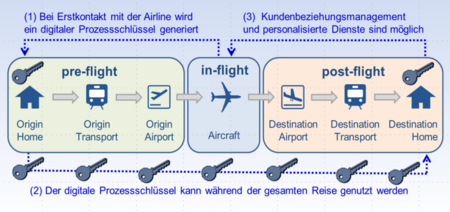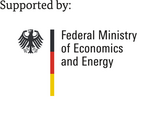
Keywords
effortless travel, smart security
Project Duration
January 1, 2018 - December 31, 2020 (36 months)
Funding Program
Luftfahrtforschungsprogram (LuFo V-3);
Das Bundesministerium für Wirtschaft und Energie (BMWi) unterstützt mit dem dritten Aufruf des fünften zivilen Luftfahrtforschungsprogramms ("LuFo V-3") Forschungs- und Technologieentwicklungsvorhaben mit einer Anwendung in der zivilen, kommerziellen Luftfahrt am Standort Deutschland
Project Coordinator
Prof. Dr. Ralf God
Technische Universität Hamburg-Harburg
Institut für Flugzeug-Kabinensysteme
Hein-Saß-Weg 22
Tel.: +49.40.42878 - 8294
E-Mail: ralf.god(at)tuhh(dot)de
Homepage: https://www.tuhh.de/fks/index.de.html
Project objective
"Come fly with me" - we are very happy to accept this invitation. But how is it possible, especially in post-pandemic times, to strengthen the confidence of passengers in this in particular? The intended project aims to support travelers along the door-to-door travel chain, in the project with a focus on the airport and the airplane, and to offer passengers improved and individualized care, management and guidance as well as more security, comfort and new services.
In the project, the overriding focus is on the possibilities of passenger flow control, which is important for safety (here the aspects of safety, security and health for passengers and crew) and the attractiveness of the air transport system. By designing smart solutions and integrating and using existing technologies, the project will create opportunities to achieve reliability, comfort and efficiency in end-to-end processes on the land and air sides through suitable structures and digitization in the air transport system (in the project throughout the airport and in the aircraft cabin). Among other things, this involves reducing throughput and waiting times, avoiding congestion, and a generally perceived smoother process. To achieve this, the positions and destinations of participants, i.e., the travelers or passengers as well as the crew members, must be continuously recorded in source-sink networks, evaluated and used for passenger flow control.
The participants in the new value network for mobility envisaged in the project should be able to engage and integrate themselves in an economically sustainable and successful manner in the context of a platform economy to be designed here.








